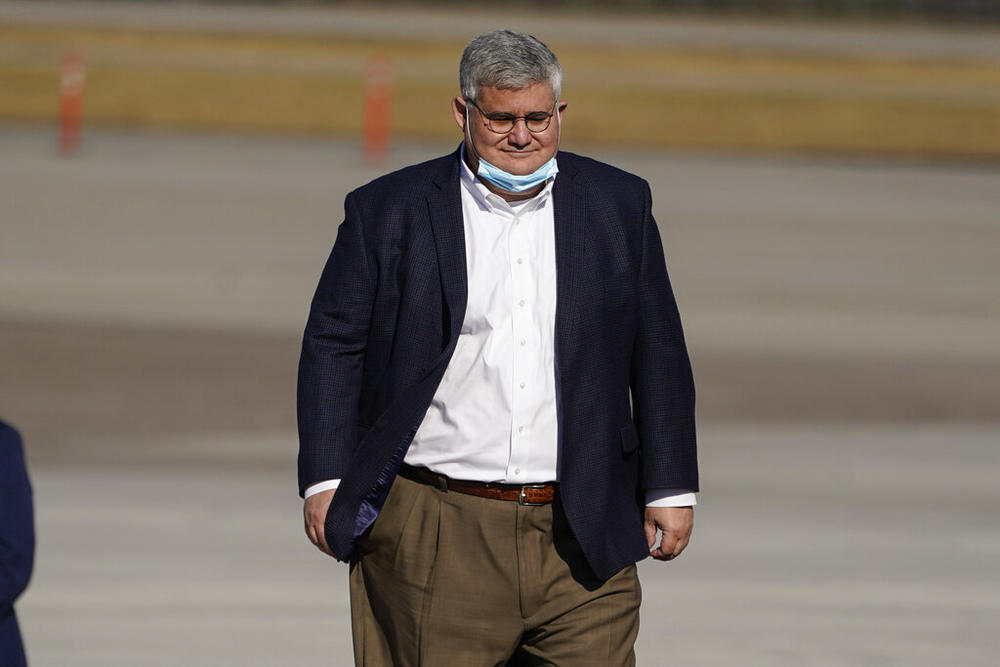
Caption
Lawyers for former Georgia Republican Party Chair David Shafer and two others accused of election interference argued their clients should have their case moved to federal court in a Sept. 20, 2023, hearing.
Credit: AP Photo/John Bazemore, File

